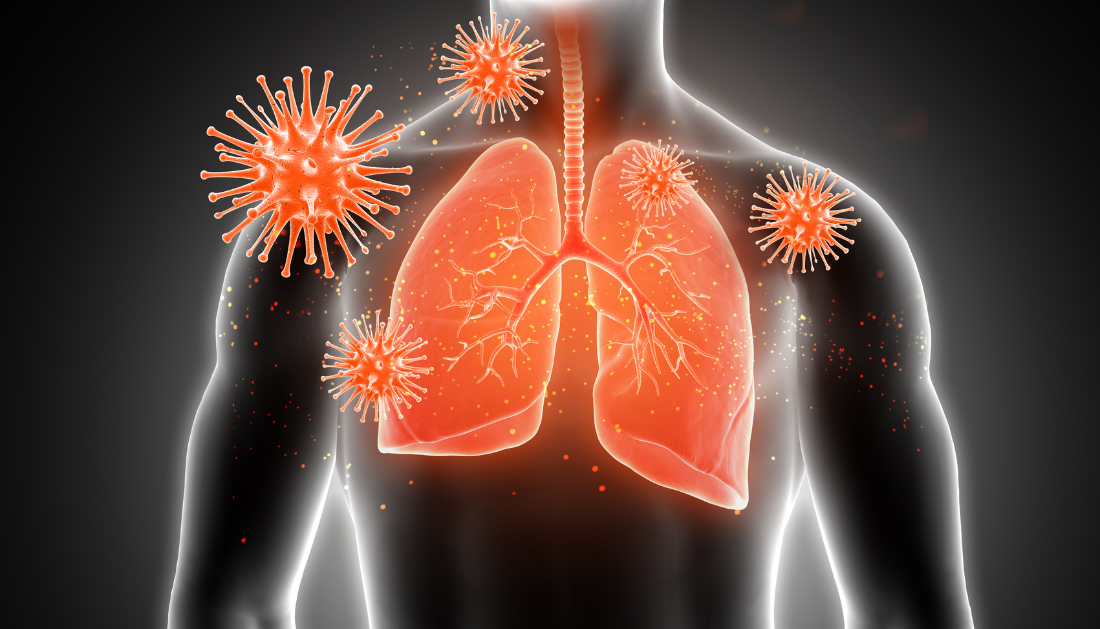

Recent advances in cancer research have underlined the importance of the immune system, particularly in the significant success of cancer immunotherapy.
A paradigm-shifting study led by researchers at the Icahn School of Medicine at Mount Sinai in New York, in collaboration with the University of Helsinki and Massachusetts General Hospital, sheds light on how immune genetic variations influence lung cancer risk, potentially paving the way for improved prevention and screening.
The findings were published online in Science on February 22.
The researchers used genetic epidemiology and multimodal genomic studies using data from the UK Biobank to validate it in FinnGen. Their research focused on human leukocyte antigen (HLA) molecules, which are among the most varied genes in the human genome and play an important role in immunological recognition. These genes include instructions for producing proteins, which play an important role in presenting foreign antigens on cell surfaces. This mechanism supports the immune system in detecting and removing dangers like cancer cells.
Surprisingly, the study discovered that people with heterozygosity (different versions of a gene) at HLA-II, rather than HLA-I, had a lower risk of lung cancer. This effect was most significant among smokers, who are already at an increased risk of developing lung cancer due to carcinogen exposure.
“Our findings challenge conventional thinking by demonstrating that immune genetics, specifically HLA-II heterozygosity, plays a significant role in lung cancer risk, especially among smokers,” says co-senior author Diego Chowell, Ph.D., Assistant Professor of Oncological Sciences and Immunology and Immunotherapy at Icahn Mount Sinai.
“Further, when we added polygenic risk scores—which is a measure of genetic predisposition based on multiple genes—to the analysis, it increased the lifetime risk of lung cancer, specifically in smokers who have identical versions of the HLA-II genes.”
According to the researchers, the ramifications of this study go beyond lung cancer and provide a new perspective on cancer risk assessment. Cancer is thought to be caused by random mutations that occur during DNA replication, as well as inherited mutations and environmental influences.
According to Dr. Chowell, the research revealed that the immune system plays a role in the etiology of cancer. The researchers hope to develop more effective prevention measures by taking immune genetics, hereditary, and environmental factors into account, potentially leveraging the immune system to attack cancer.
“These results highlight a previously overlooked aspect of cancer risk assessment,” says co-author Robert Samstein, MD, Ph.D., Assistant Professor of Radiation Oncology, Immunology, and Immunotherapy at Icahn Mount Sinai.
“Our study marks a big step toward understanding the intricate interplay between the immune system and cancer risk. We hope that by identifying individuals with increased susceptibility based on their immune genetics, we can implement more targeted screening, prevention, and treatment strategies.”
The next step for the study team is to look deeper into the processes underpinning HLA heterozygosity’s protective effects, with an emphasis on preclinical illness models. They also intend to investigate the role of non-classical CD4 T cells and HLA class II in cancer biology, with the goal of making potential advances in cancer prevention and treatment.
More information: Chirag Krishna et al, An immunogenetic basis for lung cancer risk, Science (2024). DOI: 10.1126/science.adi3808. www.science.org/doi/10.1126/science.adi3808
more recommended stories
 Statins Rarely Cause Side Effects, Large Trials Show
Statins Rarely Cause Side Effects, Large Trials ShowKey Points at a Glance Large.
 Anxiety Reduction and Emotional Support on Social Media
Anxiety Reduction and Emotional Support on Social MediaKey Summary Anxiety commonly begins in.
 Liquid Biopsy Measures Epigenetic Instability in Cancer
Liquid Biopsy Measures Epigenetic Instability in CancerKey Takeaways Johns Hopkins researchers developed.
 Human Antibody Drug Response Prediction Gets an Upgrade
Human Antibody Drug Response Prediction Gets an UpgradeKey Takeaways A new humanized antibody.
 Pancreatic Cancer Research: Triple-Drug Therapy Success
Pancreatic Cancer Research: Triple-Drug Therapy SuccessKey Summary Spanish researchers report complete.
 Immune Cell Epigenome Links Genetics and Life Experience
Immune Cell Epigenome Links Genetics and Life ExperienceKey Takeaway Summary Immune cell responses.
 Dietary Melatonin Linked to Depression Risk: New Study
Dietary Melatonin Linked to Depression Risk: New StudyKey Summary Cross-sectional analysis of 8,320.
 Chronic Pain Linked to CGIC Brain Circuit, Study Finds
Chronic Pain Linked to CGIC Brain Circuit, Study FindsKey Takeaways University of Colorado Boulder.
 New Insights Into Immune-Driven Heart Failure Progression
New Insights Into Immune-Driven Heart Failure ProgressionKey Highlights (Quick Summary) Progressive Heart.
 Microplastic Exposure and Parkinson’s Disease Risk
Microplastic Exposure and Parkinson’s Disease RiskKey Takeaways Microplastics and nanoplastics (MPs/NPs).

Leave a Comment